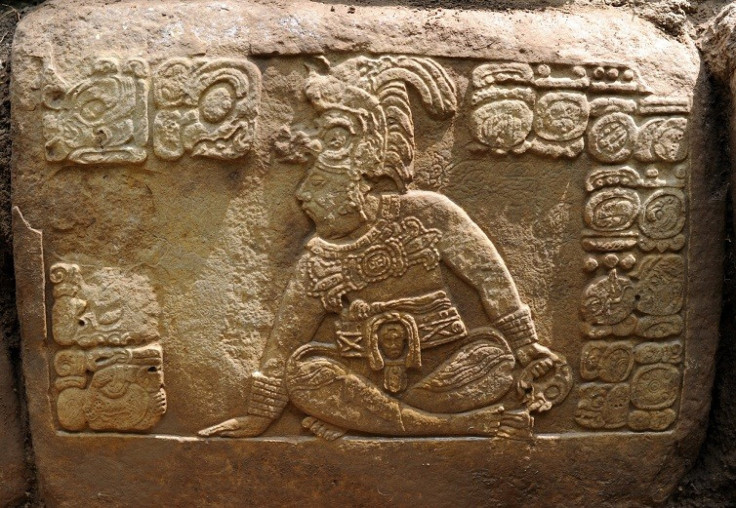New Mayan Find Mentions 2012 Calendar Cycle End, But Does Not Predict Doomsday

Archaeologists have discovered a 1,300-year-old Mayan text carved on the steps of an ancient staircase in Guatemala that refers to the end date of the Maya calendar on Dec. 21, 2012 -- only the second artifact to do so.
The reference to the end of a particular time cycle is no doomsday prophecy, but rather a political booster speech from a powerful ruler.
There are 56 intricate hieroglyphs carved on one block of the staircase that commemorate a royal visit to the site in the year 696 A.D. by King Yuknoom Yich'aak K'ahk of Calakmul a few months after he suffered a defeat from a rival king. After the battle, Yuknoom visted several of his allies in order to reassure them that he wasn't killed by his enemy, according to researchers.
This was a time of great political turmoil in the Maya region, and this king felt compelled to allude to a larger cycle of time that happens to end in 2012, University of Texas at Austin researcher David Stuart said in a statement Thursday.
The discovery was announced on Thursday at the National Palace in Guatemala.
Fears of a Mayan apocalypse prophecy are based on the fact that the Mesoamerican Long Count calendar, which counts forward from a mythical creation date around 3114 B.C. One of the subunits of time within the Long Count calendar is the b'ak'tun, which corresponds to about 144,000 days. December 21, 2012 marks the transition from one b'ak'tun to the next.
Scholars of the Maya say there's nothing in the civilization's prophecy to suggest that they were expecting any kind of cataclysm at this point in time.
In times of crisis, the ancient Maya used their calendar to promote continuity and stability rather than predict apocalypse, Macello Canuto, director of Tulane University's Middle American Research Institute, said in a statement Thursday.
© Copyright IBTimes 2024. All rights reserved.











